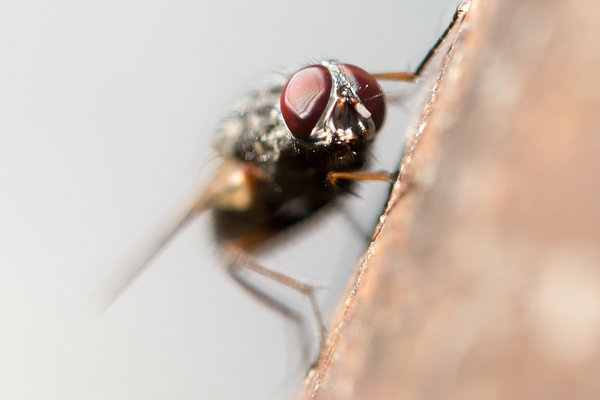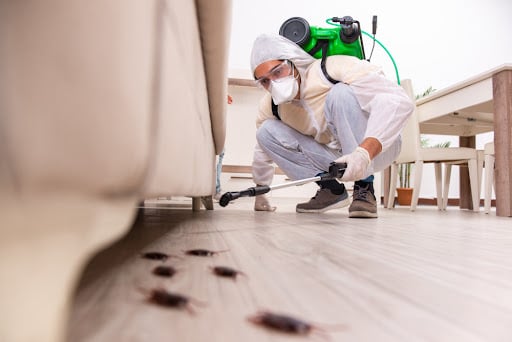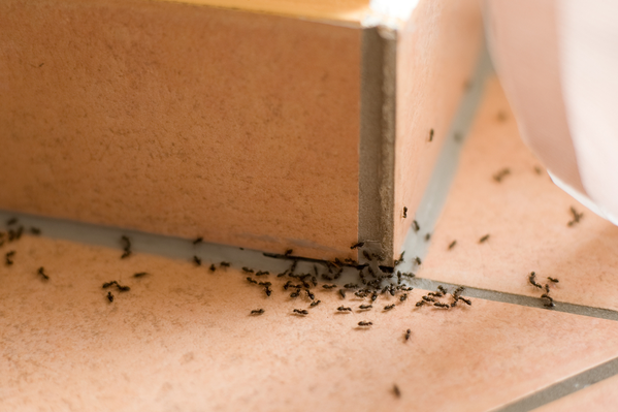Having a house full of flies in the winter may sound like an unlikely travesty. However, a fly infestation during cold weather isn’t as uncommon as you may think. There are several species of flies that can survive as the temps drop, including cluster flies and house flies.
Both cluster and house flies lay eggs in out-of-the-way areas so they can hatch during the winter months. You may be wondering, where do flies go in the winter? And, where do flies lay eggs? Unfortunately, flies can best survive the winter by setting up shop in your home.
Whether you have cluster flies overwintering in your walls or fruit flies buzzing around your food, you’re probably ready to be rid of your fly infestation for good. Here’s what you should know about eliminating winter flies:
Why Do I Have Flies in My House in the Winter
1. Can fruit flies survive the cold?
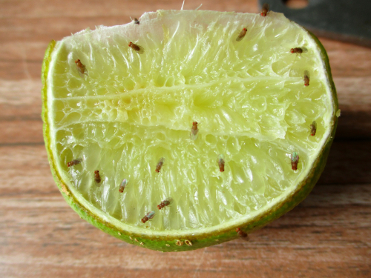
Phorid flies, blow flies, and fruit flies in the winter get cozy in the nearest trash pile. They preserve heat by staying as covered and contained as possible. They feed off the organic material they’ve buried themselves in to survive until spring. Because of this, it isn’t rare to have a fruit fly problem in winter. Keeping a clean kitchen, covering trash and removing waste frequently will help to minimize your risk.
2. How do cluster flies survive the winter?
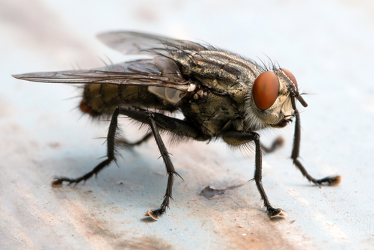
House flies and cluster flies hatch during the winter. Adults lay their eggs in safe and warm areas. This can be inside homes, tucked into garages and basements, or anywhere they consider reasonably safe. The egg-laying females die naturally after birth, but the eggs go on to hatch during the winter. Cluster flies are particularly common in winter because of their ability to quickly reproduce indoors, creating “clusters” of problem pests.
Cluster flies and several other species can enter diapause during the winter. This semi-dormant state allows these flies to preserve heat and energy when the climate isn’t ideal. Unlike true hibernation, diapause can be short-term. The moment the temperature rises again, flies can wake up and begin hunting and spreading.
Cluster Flies: Why Are There So Many Flies in My House in Winter?
Cluster flies are the most likely fly species to give you a hard time this winter. They’re especially sneaky because they love laying eggs in walls. This means you can’t seal any cracks or crevices in walls because you might trap them inside where they’ll die and attract even more obnoxious pests.
How to Get Rid of Cluster Flies in Winter
So, what can you do about cluster flies in the winter? You have a couple options, including:
- Vacuum up visible flies
- Use flypaper - remove often to prevent disease transmission.
- Apply a safe and approved indoor pesticide - best done by a professional.
- Seal gaps and cracks around doors and windows. This is a great way of preventing cluster flies.
- Simply wait for them to leave. If the flies in your home this winter aren’t too annoying or disruptive, you can just leave them alone. During the spring, cluster flies will vacate your home so they can enjoy the outdoor heat. Once they’re gone, you can seal their entry points like mentioned above.
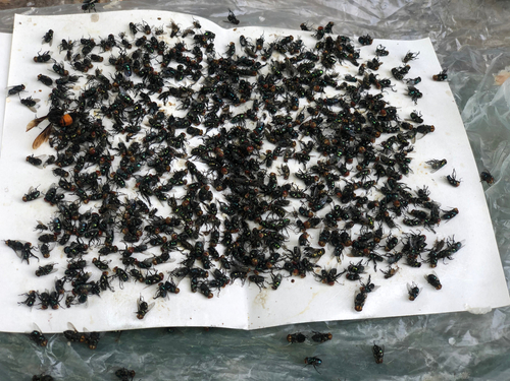
Cluster flies stuck on flypaper
Frequently Asked Winter Fly Questions
Where do flies go in the winter?
If they can’t find a warm home or building to stay in, most adult flies will die in the winter. The secret to the specie’s survival lies in the larvae. These small worms or maggots burrow beneath the earth or in manure piles where they can remain until temperatures thaw.
Do flies hibernate?
No, but they can enter a state of diapause or slowed development when temperatures drop.
Why do I have flies in the house all of a sudden?
Most likely you had a large group of larvae pupate into adults. This may have occurred in a garbage bin, cupboard, basement or other quiet area where eggs and larvae had sufficient food and were left undisturbed.
How do flies reproduce?
Once they mate, female flies store the collected sperm and shift their priorities to egg production. Over the course of several days, they can lay up to 500 eggs in 75-150 egg batches using the stored sperm. These eggs hatch into larvae, commonly known as maggots, which will feed voraciously on whatever organic matter available until they pupate into full adult flies.
How Do I Get Rid of Flies in My House in Winter?
Get in touch with Plunkett’s Pest Control to eliminate winter flies as well as other pests all year long. When flies won’t leave you alone during winter, we’re the folks to call. Whether it’s flies in your garage, house, basement or elsewhere, we’ll diagnose your current infestation, remove it, and ensure it can’t come back… all before spring! Ready to get started? Schedule a service using the form below!

